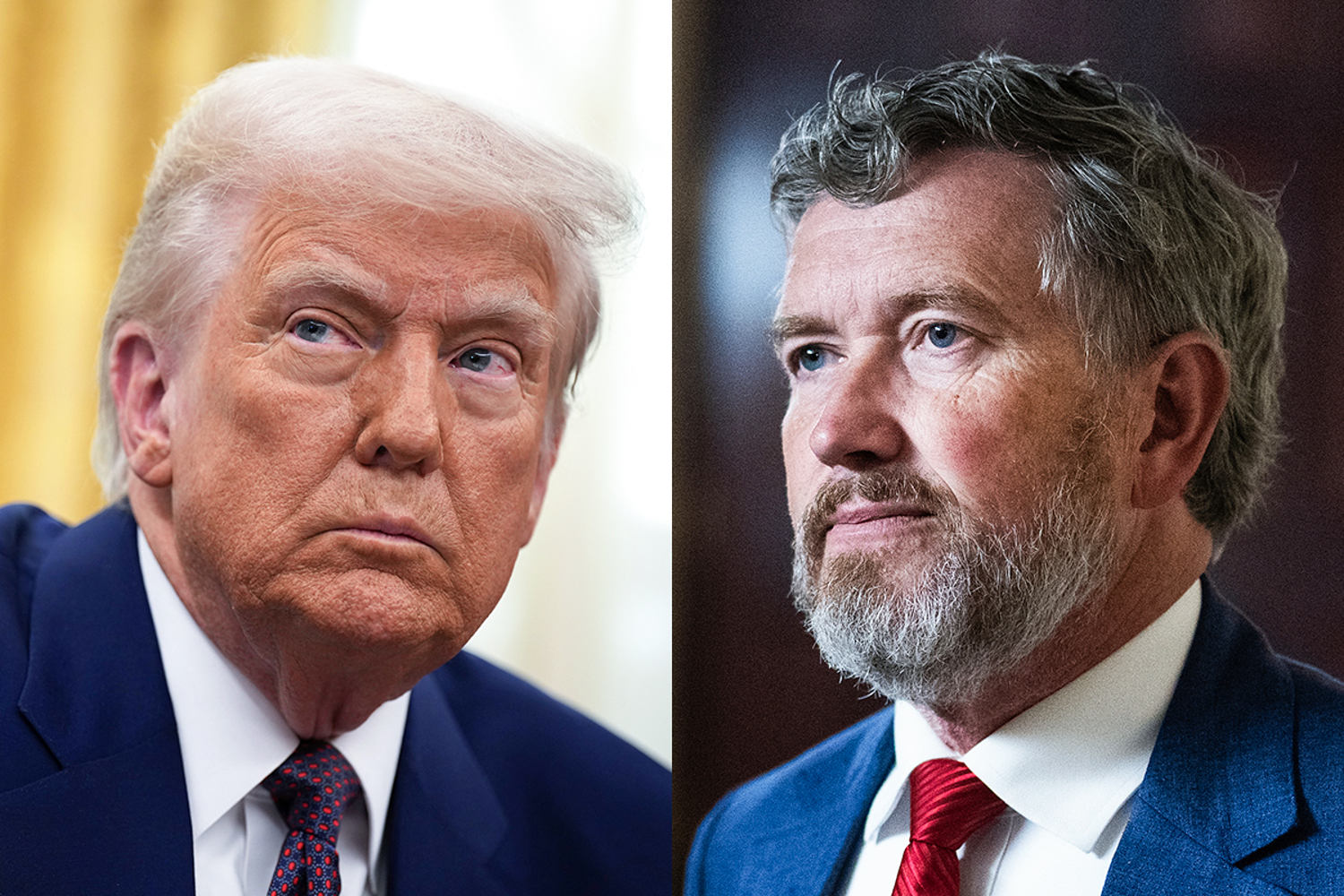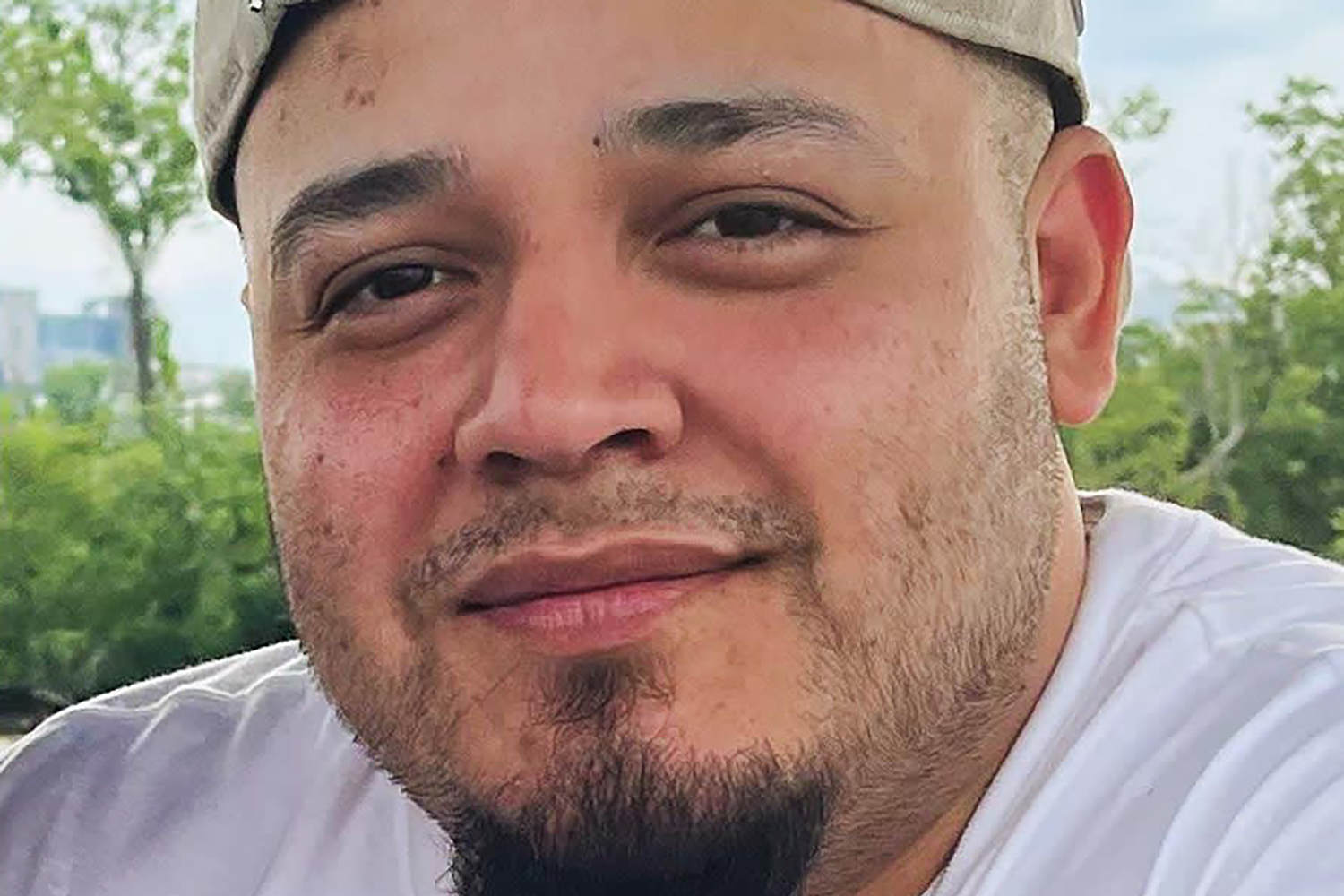“All persons born or naturalized in the United States, and subject to the jurisdiction thereof, are citizens of the United States and of the State wherein they reside.”
That’s the opening line of the Fourteenth Amendment. The vast majority of legal scholars have long understood the clause to confer citizenship on immigrant children born in the United States. But not President Donald Trump.
“This had to do with the babies of slaves,” the president asserted yesterday, at a press conference celebrating a Supreme Court decision that partially clears the way for the administration to end the practice of birthright citizenship, though the attempt will face further legal hurdles. (The court has not ruled on the challenge to birthright citizenship itself, only the ability of lower courts to issue nationwide injunctions against it.) According to Trump and his supporters, Congress never intended the amendment to grant citizenship to immigrant children — only to formerly enslaved people and their children.
As legal experts have explained, the text of the amendment itself disproves Trump’s claim, which the court’s conservatives — who so often extoll the virtues of originalism, interpreting the Constitution based on its meaning at the time it was written — should well know. So does the historical record.
We do not have to guess what members of Congress intended with the Fourteenth Amendment and the children of immigrants. We know, because they told us themselves. And Trump won’t like what they had to say.
The president is correct on one point: The Fourteenth Amendment’s framers intended its primary beneficiaries to be formerly enslaved Black people.
In the months immediately following the Civil War, ex-Confederate states began forming new governments and passing laws that sharply curtailed the rights of freedmen who had been liberated under the terms of the Emancipation Proclamation and Thirteenth Amendment.
The so-called Black Codes varied by state but shared common features. In Mississippi, for example, Black people were required to sign annual labor contracts, and those who left their jobs could be arrested for vagrancy. In South Carolina, African Americans were barred from any occupation other than farming or domestic work unless they paid a special tax. Many codes also limited Black people’s rights to own property, bear arms, serve on juries or testify against white people in court. These laws effectively criminalized Black life and sought to reimpose slavery in all but name.
In response, Congress passed the Civil Rights Act of 1866 over President Andrew Johnson’s veto, conferring rights and citizenship on Black Southerners. Recognizing that they might not enjoy congressional supermajorities in perpetuity, they also sought to enshrine these rights permanently in the Constitution, via the Fourteenth Amendment.
But today, Trump contends that the amendment does not apply to immigrants. His argument rests on two conceits:
First, that the text of the amendment specifically limits birthright citizenship to “persons born or naturalized in the United States, and subject to the jurisdiction thereof” — which, conservatives argue, does not include immigrant children, as they owe allegiance to a foreign power and are not fully subject to U.S. sovereign authority.
Second, as the president explained on Friday, he believes the framers intended only to confer citizenship on freedmen (retroactively) and their children (prospectively). In effect, they were attempting a constitutional repudiation of the infamous Dred Scott decision, in which the Court in 1857 denied that Black persons could be citizens.
We know both of these arguments are shambolic, because the framers told us so.
Senator Jacob Howard, a Republican from Michigan, drafted the birthright citizenship language and was clear in his intent. “This amendment which I have offered is simply declaratory of what I regard as the law of the land already, that every person born within the limits of the United States, and subject to their jurisdiction, is by virtue of natural law and national law a citizen of the United States,” he explained.
But Howard qualified his explanation. “This will not, of course, include persons born in the United States who are foreigners, aliens, who belong to the families of ambassadors or foreign ministers accredited to the Government of the United States, but will include every other class of persons.”
At first blush, it would seem that meant to exclude the children of foreign-born immigrants from enjoying birthright citizenship. But the Senate debate makes clear he and his colleagues meant only to exclude the children of foreign diplomats and officials in the United States on business.
In a key exchange, Senator Edgar Cowan of Pennsylvania fretted that the amendment would expose the United States to mass demographic upheaval, specifically by making immigrant children citizens. He worried particularly about “Gypsie” (or Roma) immigrants in his home state and a small but growing population of Chinese immigrants in California. In response, John Conness, a senator from California, who supported the bill, agreed with Howard that the citizenship clause applied to immigrants, affirming that the amendment “relates simply in that respect to the children begotten of Chinese parents in California, and it is proposed to declare that they shall be citizens. … I am in favor of doing so. … We are entirely ready to accept the provision proposed in this constitutional amendment, that the children born here of Mongolian parents shall be declared by the Constitution of the United States to be entitled to civil rights and to equal protection before the law with others.”
Setting aside their crude racial determinism, the exchange makes clear that Howard and other Republicans intended the amendment to apply to all persons born in the U.S., not just freedmen. Cowan was the only Republican senator to vote against the amendment, specifically because of his concerns over birthright citizenship and immigration. In other words, even the amendment’s opponents understood its meaning and intent.
In debating who was subject to the “jurisdiction” of the amendment, the Senate focused almost entirely on the question of whether Native Americans, who had treaty rights and sovereignty, enjoyed its provisions. Most Republican supporters believed at the time they did not. But there was essentially no disagreement about the children of immigrants, who were understood to qualify for citizenship.
And the Supreme Court agreed in a landmark 1898 decision, United States v. Wong Kim Ark (1898).
Wong Kim Ark was born in San Francisco to Chinese immigrant parents who were barred from naturalization under the Chinese Exclusion Act. After a trip abroad, he was denied re-entry to the U.S., prompting a legal battle over whether he was a citizen. In a 6–2 decision, the court ruled that the Citizenship Clause of the 14th Amendment guarantees citizenship to nearly all individuals born on U.S. soil, regardless of their parents’ nationality or immigration status — establishing a foundational precedent for birthright citizenship that remains in place today
In last week’s decision, the court didn’t specifically uphold Trump’s interpretation of the Fourteenth Amendment. Instead, it significantly limited the power of lower courts to issue nationwide (or “universal”) injunctions blocking policy implementation, including Trump’s executive order denying passports and Social Security cards to immigrant children. The court signaled it would likely take up the more specific question of birthright citizenship down the line.
For the time being, the decision opens the door to a patchwork legal landscape, where birthright citizenship protections can vary dramatically depending on which states or judges are involved, leaving families in some jurisdictions shielded while others face the executive order’s full force. Legal experts warn that curtailing nationwide injunctions could let parts of Trump’s order go into effect unevenly — forcing challenges through slower and more localized litigation — and thereby sow confusion, fear and unequal citizenship rights across the country.
Trump’s argument about the Fourteenth Amendment also calls into question the process by which tens of millions of American families of European descent became citizens.
At the time of the amendment’s adoption, its framers worried primarily about whether it would make citizens of Asian immigrants. European immigrants — Italians, Irish, Germans, Jews and, later, Eastern and Southern Europeans — were broadly understood to fall under the protections of the original 1790 Naturalization Act, which made all “free white persons” of “good character” eligible for citizenship.
Many of those “free white persons” never bothered to become citizens, particularly in the 19th and early 20th centuries, when a large number of immigrants were “birds of flight” who immigrated and re-emigrated multiple times, mostly to work seasonally and bring wages back home. Many ultimately remained in the United States, but if Trump’s reading of the Fourteenth Amendment were in effect, many of their American-born children would not have been citizens if their parents were unnaturalized at the time of their births. Since 1868, birthright citizenship has been central to our understanding of who is legally an American. Take it away, and that understanding gets murky.
All eight of my great grandparents were foreign-born Jews from Eastern Europe. A few naturalized. Others didn’t. Their children — my grandparents — were born on American soil, well before their parents became citizens. By Trump’s reading, my grandparents and parents would not have been entitled to birthright citizenship. Neither, for that matter, would I. The same logic applies to tens of millions of Americans.
Lucky for me, the history is clear on this point. If the Supreme Court’s conservative majority actually believes in originalism, that means the legality of birthright citizenship is a matter of history — and the history is undeniable. Lawmakers on both sides of the issue acknowledged that the Fourteenth Amendment would extend birthright citizenship to the children of immigrants.
.png)















 English (US)
English (US)